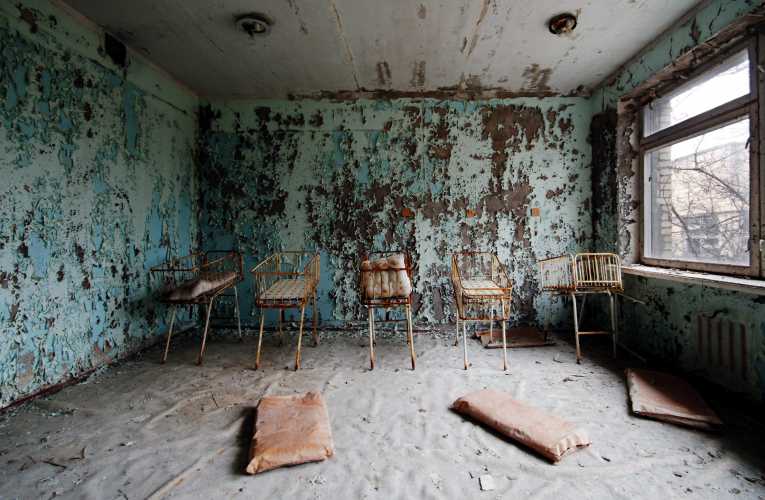Candlelit vigils and church services are being held across Europe to mark the 25th anniversary of the Chernobyl disaster.
Just after midnight on 26 April 1986, the Chernobyl nuclear power plant, just 60 miles north of the Ukrainian capital Kiev, exploded. Over 350,000 people were evacuated. 30 people died in the immediate aftermath, including firefighters and workers exposed to huge levels of radiation, and vast swathes of Eastern Europe were left contaminated.
It was, and remains, the world's worst nuclear disaster. Comparisons have inevitably been drawn between Chernobyl and the nuclear accident at Fukushima in Japan, caused by March's earthquake and tidal wave which left the nuclear power plant damaged.
Yet in terms of impact, figures from Japan's Nuclear and Industrial Safety Agency estimate the plant spilled between 370,000 and 630,000 terabecquerels of radioactivity. Chernobyl released 5, 200,000.
The accident was caused by tests being run at the plant to see how it would cope with a temporary shutdown of its cooling system. When the accident happened, the plant was still running, albeit at a lower level. For three days Moscow released no news about the accident. 1.5 tonnes of highly radioactive material had blasted into the air. The damaged unit burnt for almost ten days.
Measuring the longterm health impact has been problematic. A study of 825,000 people in Belarus, Russia and Ukraine in the years following the disaster attempted to measure sicknesses like cancer and the effects of radiation poisoning. Some environmental groups have placed the death toll at six figures. The UN's World Health Organisation said at a conference in Kiev in the week running up to the anniversary that among the 600,000 people most heavily exposed to the radiation, 4,000 more cancer deaths than average are expected to be eventually found.
Meanwhile survivors and those displaced who mark the anniversary mourning lost loved ones bemoan couples unable to have children, grandchildren who become ill. A 19 mile exclusion zone remains around the plant, a chilling reminder of the ongoing threat to the local communities that the plant holds.
In Moscow a commitment to learn from the mistakes of Chernobyl, as well as providing a more long-lasting legacy from the disaster are promised by Russian president Dmitry Medvedev, who describes it as a common pain for the people of Russia, Ukraine and Belarus. Along with 27 other countries they are building a new protective cover for Chernobyl, replacing the hastily built shelter that has remained since the disaster. At 100m high, 250m wide and 160m long it will be the largest structure of its kind in the world.










